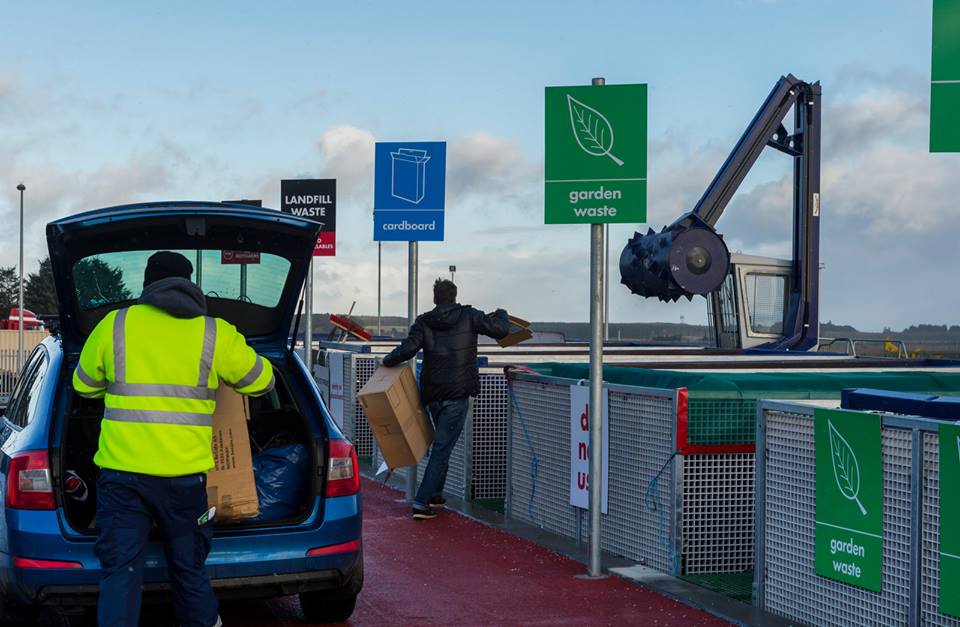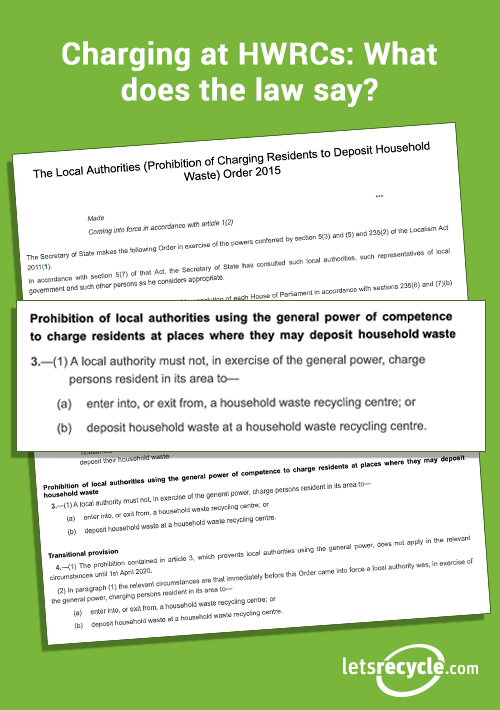Both The Telegraph and the Daily Express reported on the move by some councils to charge for disposal of non-household waste at HWRCs, linking it to an increase in fly-tipping and describing the fees as a ‘tax’.

Councils must allow residents to dispose of household waste free of charge. However, they are able to charge for ‘non-household’ waste which is taken to HWRCs – this could be DIY waste or items like tyres.
Responding to the stories, a Defra spokesperson said: “We have been clear that disposing of household waste, including waste from DIY home improvement projects, should be free of charge. That is why we are planning to review current rules.
“Where local authorities do charge people to get rid of non-household items at household waste recycling centres, they must make sure charges are proportionate and clear to understand.”
Defra review
It was also reported that Defra is launching a review of HWRC charges.

As part of this, WRAP has gathered information from local authorities and produced updated guidance for HWRC charges at the end of 2018.
The report stated that charges can be “counterproductive and may simply transfer costs to dealing with additional fly-tipping and littering”.
WRAP suggested that residents should not be charged for disposing of construction and DIY waste produced by works that an ordinary householder with no specialist skills would be able to undertake. It also warned that if HWRC use is going to be charged local authorities should ensure the fee is reasonable, transparent and does not exceed the cost of providing the service.
Fly tipping
Defra’s spokesperson also claimed that annual figures for fly tipping incidents in England for 2017/18 show no increase on the previous year. There were 997,553 fly tipping incidents reported by local authorities in England in 2017/18.
WRAP surveyed its members in 2017 to assess the link between HWRC charges and increases in fly tipping.
A total of 55 councils responded, of which 20 charged for services. Four councils had seen an increase “but only in line with national trends”, whilst 12 authorities had seen no increase or a minimal impact of fly tipping (see letsrecycle.com story).
Despite the measure being controversial in some areas a number of local authorities now charge residents to use HWRCs to dispose of non-household waste.
Examples include Kent county council, which charges £4 per bag or item for soil, rubble and hardcore items and £6 per bag of plasterboard. These fees were introduced in June this year.
In Nottingham £3 is charged per unit of concrete, rubble, hardcore or ceramics. Plasterboard is charged at £8 per sheet or bag.
Oxfordshire county council charges £1.50 per bag for most non-household waste, with higher prices for items like tyres and plasterboard.
CONFERENCE
The LARAC Conference in the UK’s annual forum for local authority waste & recycling officers. Taking place across 2nd & 3rd October 2019 at the Hilton Birmingham Metropole, the conference welcomes more than 400 visitors including 270+ from local authorities from across the UK providing a mix of updates ranging from policy and strategic thinking to operational case studies. For event and ticketing details, please visit www.laracconference.co.uk











Subscribe for free